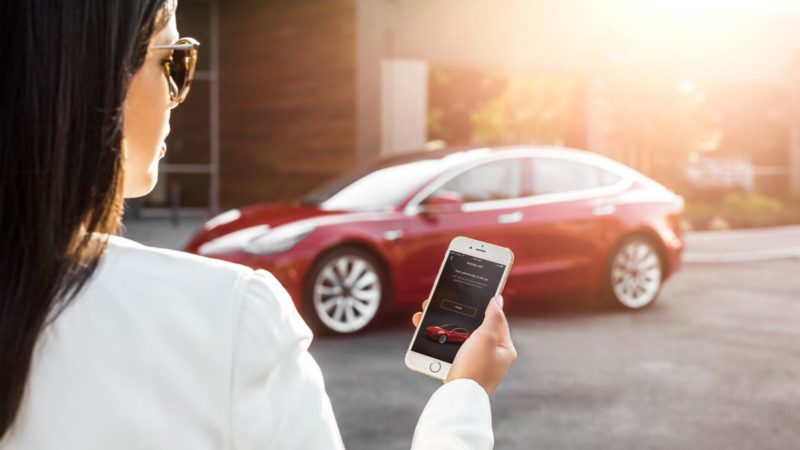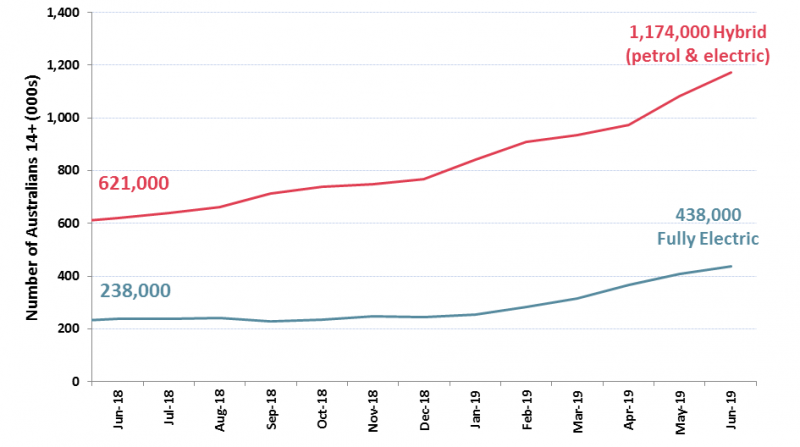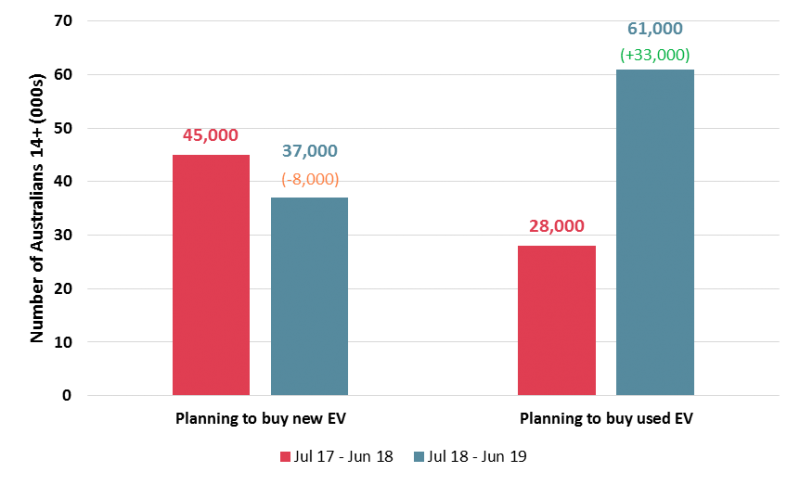Consumer interest in electric vehicles doubles in Australia

As the electric vehicle (EV) market overseas barrels along despite overall drops in auto sales, Australia has been left behind. But new data has revealed that consumer interest in EVs in Australia has doubled, marking a possible turning point for the local market and the battle to reduce transport-related emissions.
The report, which was issued on Monday by market analysis firm Roy Morgan, tells a tale of transition for the Australian auto market, with the number of Australians planning to buy an electric or hybrid vehicle doubling since year-on-year since June 2018.
In 2018, a similar report from Roy Morgan showed that 238,000 Australians were planning to go electric next time they purchased a vehicle, and 621,000 were looking at hybrids as an option.
In June 2019, the numbers have jumped considerably – nearly double the number of Australians are now planning a hybrid for their next set of wheels (1,174,000), while 200,000 more are looking at an EV, bringing the number of Australians who want to buy an EV to 438,000, according to Roy Morgan’s data.
While the Roy Morgan survey is reflective of buying intention, it also echoes recent data from the Federal Chamber of Automotive Industries (FCAI) that showed in the first half of 2019, EV sales went up while petrol and diesel car sales remained sluggish.

Roy Morgan’s data shows that of those who want to make the shift to electric mobility, 98.6% recycle what they can, 92.8% say we must act now to mitigate climate change and 89.7% consider themselves “environmentalists at heart”.
“Over the past twelve months, we have seen nearly a doubling in the number of Australians looking to purchase both electric and hybrid vehicles as their next car purchase. These increasing numbers send a clear signal to car manufacturers that Australians are interested in greener technologies,” said Levine in a statement.
Levine says the survey also shows that these are Australians who are interested in taking the time to learn how to use a new technology.
In the short term though, the numbers – which are based on the responses of 50,000 Australians spread throughout the year – are somewhat different and are perhaps painting another telling story.
Although there are an increasing number of electric vehicles coming onto the market and at more affordable prices (the Hyundai Ioniq, released in late 2018 and the new Nissan Leaf released in July come to mind), the numbers of Australians considering buying a new battery electric vehicle within the next four years has dropped in the last year from 45,000 to 37,000.
Instead, interest in buying a used electric vehicle within the next four years has doubled from 28,000 to 61,000 – a sign, says Roy Morgan that signals a growing maturity in the path of electric vehicles becoming mainstream:
This trend for used car purchasing is
a really important step for electric vehicles becoming a mainstream
technology. This is a similar trend to what was observed with new hybrid
technology in the early 2000’s and what will drive the volume of
electric vehicle sales into the future.
It’s notable that this interest has increased significantly despite
there only a small used electric vehicle market at the current time – a
quick search of Car Sales shows there are just 140 used electric
vehicles for sale on the popular car sales platform including dealer
used, demos and private sales.“When we look at the types of electric vehicles people are intending to buy, we see used vehicles growing more strongly than new vehicles, compared with a year ago. This is despite there not yet being a large second-hand electric vehicle market available,” says Levine.

Regardless, Levine says that the growth in interest in EVs sends a strong message to automakers, that understandably base decisions to import EVs based on consumer buying intentions.
“The strong growth in popularity of electric and hybrid vehicles suggests that the number of Australians driving these cars will occupy an increasing proportion of the future car industry,” she says.
“This new data derived from in-depth face-to-face interviews with over 50,000 Australians as part of the Roy Morgan Single Source survey will no doubt be of interest to electric car manufacturers, who are receiving a clear message from Australian consumers that they are looking for more affordable electric vehicle options.”

Bridie Schmidt is lead reporter for The Driven, sister site of Renew Economy. She specialises in writing about new technology, as well as using her technical skills in managing our websites.


No comments:
Post a Comment